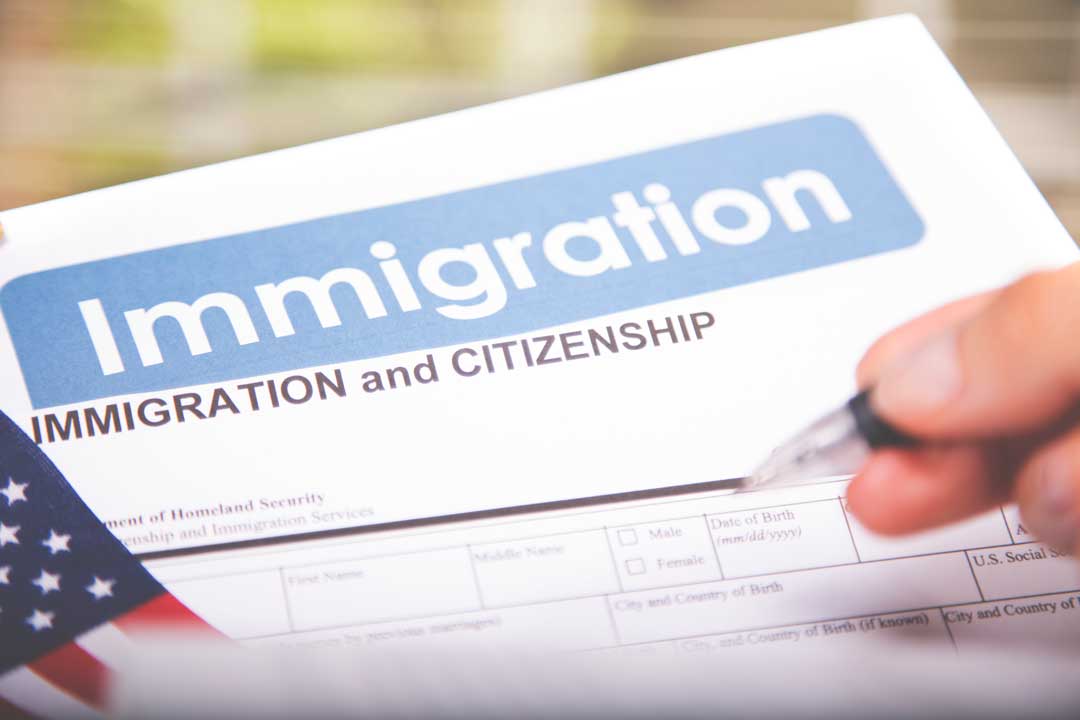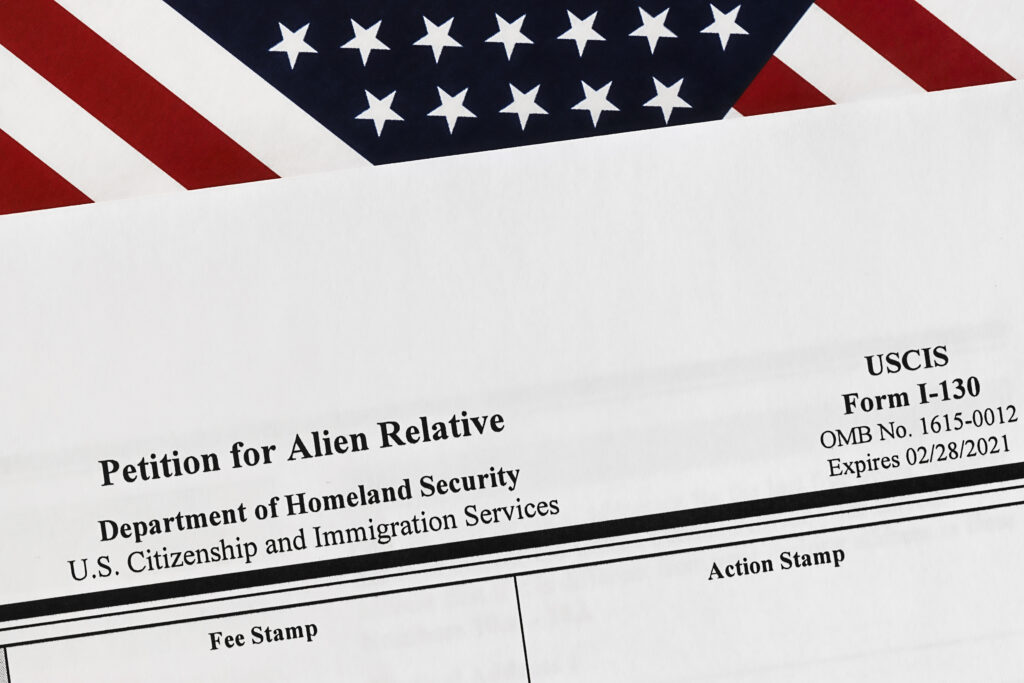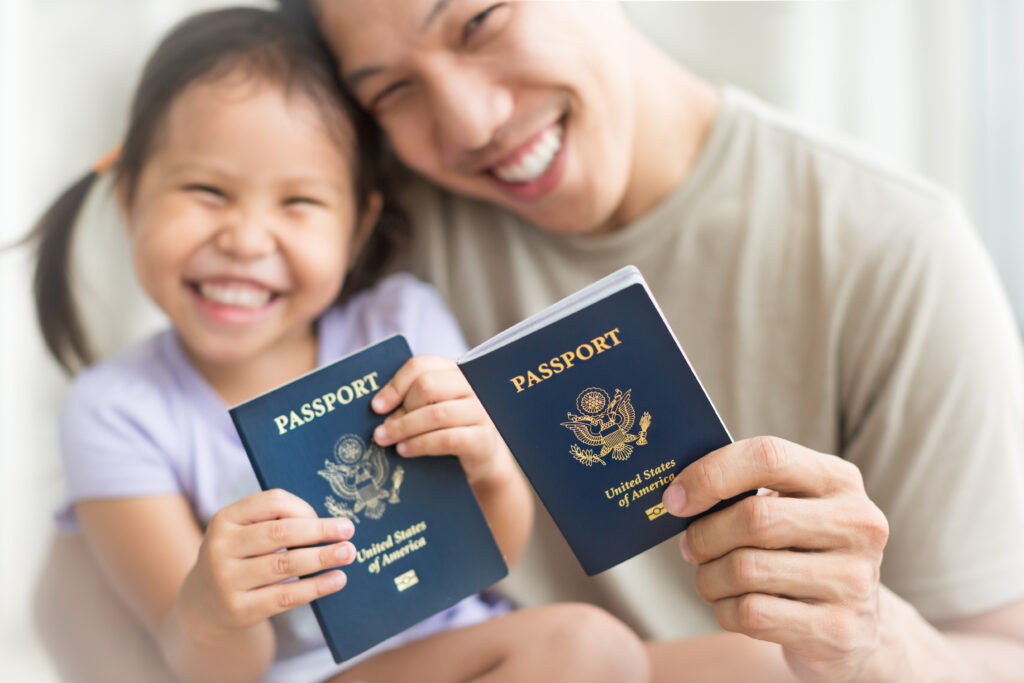

Being separated from loved ones can be extremely difficult, especially when family immigration law stands in between. Our team at Bashyam Global Immigration Law Group is committed to helping families stay together.
Family-based immigration is one of the most popular ways for individuals to seek lawful residence in the United States. Family members who are citizens or legal permanent residents can sponsor their loved ones, allowing them to become lawful immigrants and eventually acquire U.S. citizenship.

Whether you’re looking to sponsor a spouse, parent, child, or other family members, we can guide you through every step. We are here to ensure that your immigration goals are met and your loved ones are reunited with you as soon as possible. Contact us for a consultation today.
A Family Immigration Lawyer is a legal professional who provides legal advice and guidance on family-based immigration matters. In other words, family immigration lawyers assist in cases involving foreign nationals seeking temporary or permanent residency or citizenship in the United States based on their family ties to existing U.S. citizens or permanent residents.
Our family immigration attorneys handle a wide array of cases. These cases include helping individuals obtain temporary resident status and permanent residency and guiding clients through the naturalization process. We can also assist in filing petitions for alien relatives, waivers of inadmissibility, and provide guidance on family sponsorship. Additionally, our lawyers can provide representation in deportation proceedings, at immigration interviews, or with humanitarian visas. We handle the following types of family immigration cases among many more:

To be eligible to sponsor your family member, you first need to make sure you meet the requirements to sponsor your potential immigrant family member:
The person you are sponsoring must also be eligible to receive a green card or other immigration status to immigrate here legally. This means they must pass certain background checks and meet all applicable requirements of U.S. immigration law. For more information on eligibility for becoming a lawful permanent resident, contact our immigration lawyers today.
Navigating the complex world of immigration law can be daunting for many. Immigration laws are constantly changing and can be challenging to understand and keep up with.
Additionally, the rules and regulations surrounding family-based immigration can be especially tricky, with numerous requirements and deadlines that must be met. Making even a small mistake in the immigration process can result in significant delays or even denial of your application.
This is where a family immigration lawyer comes in – we have the knowledge and experience necessary to ensure that your case is handled correctly and that you have the best chance of success.

Hiring a family immigration lawyer has numerous benefits, such as:
Avoiding costly mistakes: As mentioned above, even a small error in your immigration process can result in costly delays or even denial of your application. An attorney can help you avoid these mistakes and ensure that your application is handled correctly from start to finish.
Keeping you informed: Immigration laws and regulations constantly change, and staying current with the latest developments can be challenging. An attorney can help keep you informed about any changes affecting your case and advise you on the best course of action.
Streamlining the process: Applying for family-based immigration can be a lengthy and complicated process. A lawyer can help you navigate the process more efficiently, ensuring that your application is submitted correctly, all required documentation is included, and all deadlines are met.
Increasing your chances of success: The most significant benefit of hiring an immigration lawyer is that they can significantly increase your chances of success. With their knowledge, experience, and understanding of the laws and regulations surrounding family-based immigration, they can help you present the strongest case possible and maximize your chances of securing the desired outcome.
Immediate Relative Immigrants
This category includes immediate family members, spouses, children under 21 years of age, and parents of U.S. citizens over the age of 21. These individuals can enter the United States without waiting in line due to their close relationship with a U.S. citizen or permanent resident.
Family Preference Immigrants
Family Preference Immigrants are relatives that a U.S. citizen can sponsor. Still, they must wait in line for their visa to become available according to the preference system, which includes: Unmarried sons and daughters over 21 years of age; Married children of any age; Siblings of U.S. citizens over 21 years of age; and Unmarried sons and daughters under 21 years of age.
Similarly, Lawful Permanent Residents or green card holders can petition the following family preference immigrants: spouses and unmarried minor children under 21 years of age; unmarried sons and daughters over 21 years of age.

Once you have determined that you and the person you are sponsoring meet all the requirements for family-based immigration, it is time to begin the application process.
The first step is to fill out and file Form I-130, Petition for Alien Relative. This family-based immigration petition must be filled out correctly and entirely for your application to be approved. It is highly recommended that you seek the assistance of an experienced family immigration lawyer when filing Form I-130, as even small mistakes can result in costly delays or denial of your petition.
Once Form I-130 has been filed, the sponsoring family member and their sponsored relative will receive notice from U.S. Citizenship and Immigration Services (USCIS) that their petition has been approved. From there, the sponsoring family member must provide additional documentation for the sponsored relative to receive their green card or other immigration status.
Seek the assistance of an immigration attorney to ensure all required documents are filed correctly and all deadlines are met. A lawyer can help make the family immigration process as streamlined and stress-free as possible, ultimately increasing your chances of success in obtaining the immigration status you need.

Once you have determined that both you and the person you are sponsoring meet all of the requirements for family-based immigration, it is time to begin the application process.
Form I-130, Petition for Alien Relative
Form I-130 must be filled out and filed for the sponsored relative to receive their green card or other immigration status. This form must be accurate and complete for your application to be approved.
Once Form I-130 has been filed, the sponsoring family member and their sponsored relative will receive notice from U.S. Citizenship and Immigration Services (USCIS) that their petition has been approved. From there, the sponsoring family member must provide additional documentation for the sponsored relative to receive their green card or other immigration status, once a visa is available for them to proceed with pursuing permanent residence. Your family member may be able to file an Adjustment of Status through Form I-485 at that point, or may be able to purse an immigrant visa through Consular Processing
Form I-864, Affidavit of Support
This form must be filed by the sponsoring family member for the sponsored relative to receive their green card. This form demonstrates that the sponsoring family member has enough income or assets to support their sponsored relative financially. The amount of support needed depends on various factors, including the size of the sponsor’s household and total number of people supported.
Form I-129F
Fiancés residing outside the United States who are engaged to U.S. citizens and their children may be eligible for a fiancé(e) visa. To apply, the U.S. citizen must complete Form I-129F to file a petition for their fiancé. Additionally, spouses and unmarried children under 21 of U.S. citizens residing outside the U.S. may apply for a K-3 or K-4 visa by completing Form I-129F.

Citizenship is eligible only to individuals who are lawful permanent residents or green card holders. Most individuals qualify after having that status for five years. If you are married to a U.S. citizen, you can apply after holding that status for three years. The other requirements include:

Bashyam Global LLP is a full-service immigration law firm that can assist you with the family visa process. Our experienced team of immigration professionals will help guide you through each step, from filing paperwork to attending interviews and obtaining your green card or other immigration status. Contact our office online or call us at 919-833-0840 today for more information about family visas and how we can help you achieve your goals.